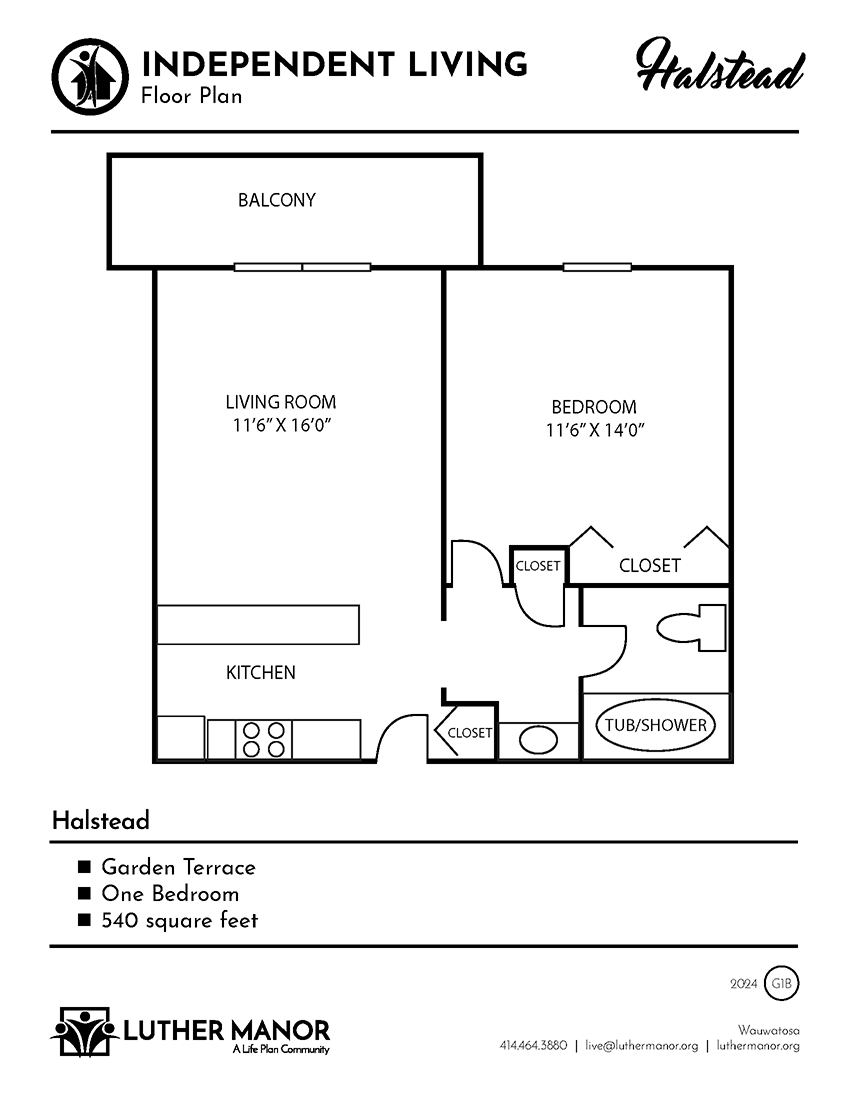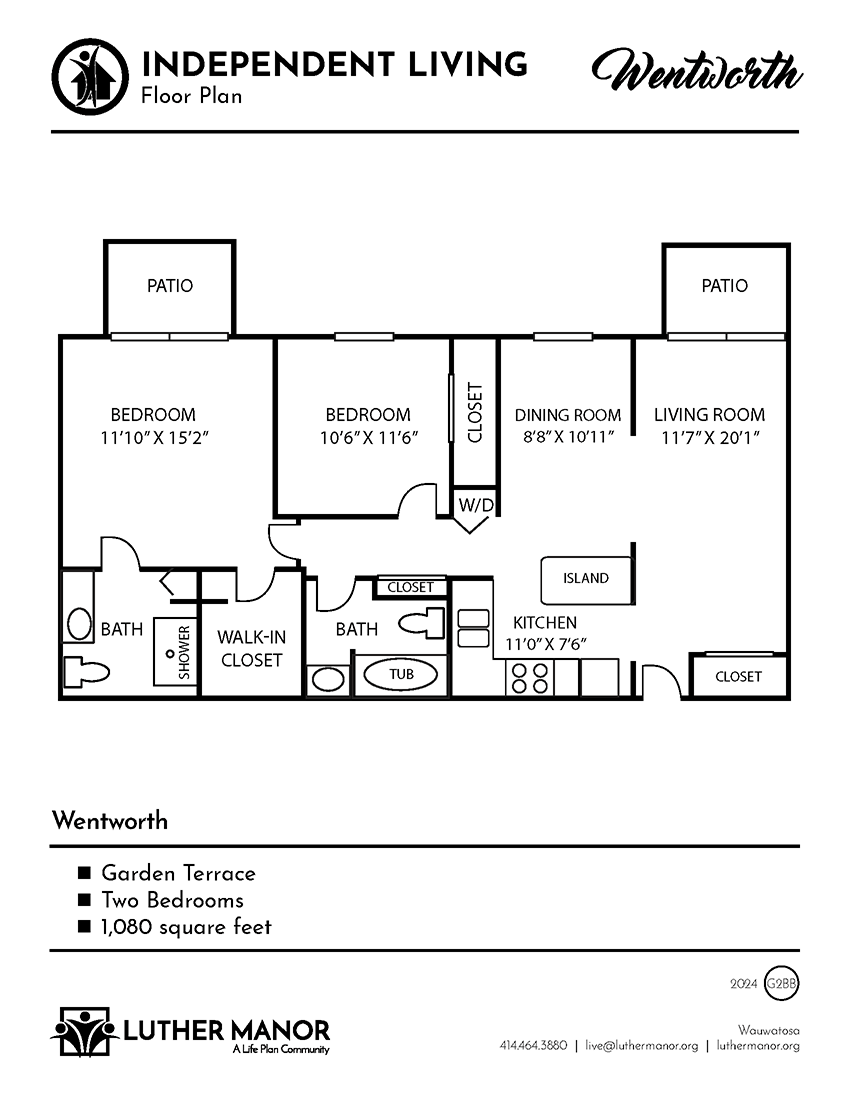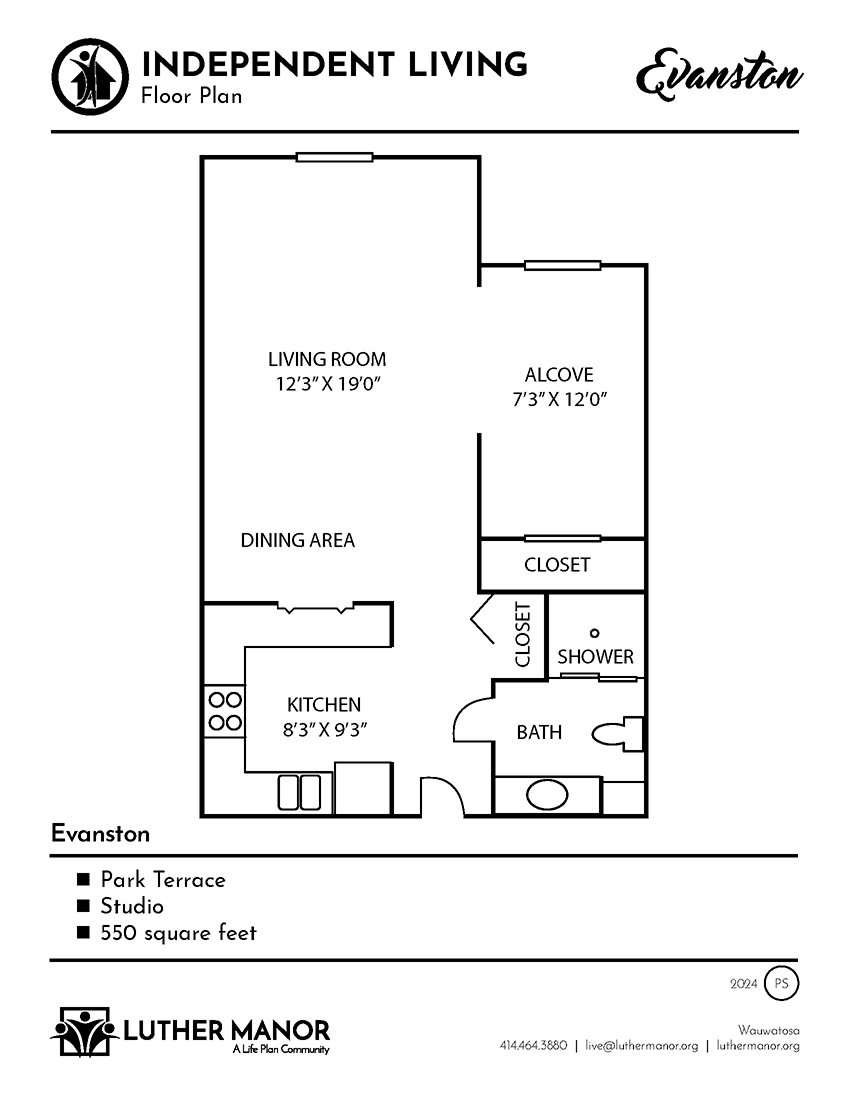
Choosing the right level of care for an older adult can be overwhelming, especially when comparing assisted living and memory care. Luther Manor in Wauwatosa, WI, offers both options designed for distinct needs and preferences. Below, we explain how assisted living and memory care differ, who benefits from each level of support, and how to decide which is right for your loved one. Whether your loved one needs some help with daily tasks or specialized dementia care, understanding these differences can guide you toward the best choice.
What Is Assisted Living and Who Thrives in It
Assisted living supports seniors who benefit from occasional or daily help with activities such as bathing, dressing, preparing meals and managing their medication. At The Courtyards, Luther Manor’s assisted living community, residents maintain as much independence as possible, while receiving care that ensures their comfort and safety. This supportive environment is perfect for older adults who can make decisions on their own but enjoy having help available when needed.
Those who benefit most from assisted living are typically:
- Seniors who can handle many daily tasks but want reassurance of around-the-clock support
- Individuals who may feel isolated at home and desire a social community
- Older adults in need of basic medical or personal care services but not skilled nursing
What Is Memory Care and Who It Supports
Memory care is a specialized type of senior living for those with Alzheimer’s disease, dementia or other types of cognitive decline. The Gardens, Luther Manor’s memory care community, provides a secure environment, structured routines and staff trained specifically in dementia care. These measures ensure that residents who experience memory-related challenges have a sense of familiarity and safety.
Memory care is beneficial for those who:
- Have cognitive impairments that interfere with their ability to follow routines
- Require a higher level of supervision to prevent wandering or accidents
- May need specialized therapies and activities designed to stimulate memory and reduce agitation
Comparing Assisted Living and Memory Care: Notable Contrasts
While both assisted living and memory care ensure older adults receive help with daily activities, they differ in several ways:
1. Focus on Safety
Assisted Living
At Luther Manor, residents are encouraged to remain as independent as possible, although the community includes basic safety precautions and trained staff. This environment is suitable for seniors who are looking for activities and amenities that make it easy to socialize and stay connected with the greater community.
Memory Care
By design, memory care neighborhoods prioritize safety for those prone to wandering or disorientation. Luther Manor’s memory care features soothing spaces, secure entrances, specialized layouts and caring staff who provide support while ensuring that each individual remains safe.
2. Staff Expertise and Care
Assisted Living
Caregivers in assisted living are trained to help with daily tasks, medication management and general well-being. Though staff are skilled, they focus primarily on providing supportive care that promotes independence.
Memory Care
Memory care teams receive additional training in dementia care, communication and redirection techniques. They also learn how to manage challenging behaviors and reduce anxiety, guaranteeing that residents feel understood and respected.
3. Amenities and Facility Features
Assisted Living
Common areas are similar to upscale apartment living, with comfortable lounges, restaurant-style dining, game rooms and an outdoor courtyard with walking paths. Residents have private or shared suites with minimal adaptations.
Memory Care
Environments are designed to minimize confusion and stress. Luther Manor integrates color-coded hallways or cues and enclosed courtyards to allow for safe wandering. The overall ambiance is calming, supportive and intentionally designed to support individuals with memory impairments.
4. Structured Activities and Cognitive Therapies
Assisted Living
Activities revolve around resident interests such as crafts, group exercise or community outings. The goal is to encourage social engagement and maintain an active lifestyle.
Memory Care
Programming includes therapies that support cognitive function, like reminiscing sessions, music therapy or sensory-based activities. Days follow predictable schedules to foster stability and comfort.
5. Comparing Costs
Assisted Living
Monthly fees usually cover housing, meals, housekeeping and basic care. Costs vary by location, residence and level of care.
Memory Care
Memory care is often more expensive due to specialized staff training, security enhancements and additional services. Luther Manor’s memory care costs reflect the advanced support and safe environment provided to residents.
Key Services: Assisted Living or Memory Care?
In assisted living, services include help with personal care routines, medication reminders and social events. Memory care adds specialized programs, close supervision and therapeutic activities meant to guide those facing memory decline through daily life. By identifying a resident’s health status, cognitive level and personal goals, Luther Manor can recommend the setting that best aligns with their needs.
Deciding Between Assisted Living and Memory Care
Choosing between assisted living and memory care depends on your loved one’s cognitive abilities, physical health and desire for independence.
Making the Choice: When to Opt for Assisted Living
Assisted living works well if your loved one:
- Needs moderate help with daily tasks (bathing, dressing or taking medications)
- Enjoys an active social scene
- Can navigate spaces independently without major confusion
- Desires a safer and more communal living option
Residents at Luther Manor find that assisted living fosters independence while minimizing isolation and stress.
Making the Choice: When Memory Care Is Essential
Memory care becomes essential if your loved one:
- Has been diagnosed with Alzheimer’s or another form of dementia
- Requires continuous supervision and structured routines
- Struggles with disorientation, wandering or mood changes
- Needs a specialized environment designed to alleviate cognitive challenges
Luther Manor’s memory care program meets these needs through advanced caregiver training, modified activities and a secure campus.
Memory Care in Assisted Living: A Possible Middle Ground
Some communities offer specialized memory care within their assisted living setting. This may be an option for individuals in the early or mid-stages of dementia who benefit from more structure but still maintain some independence. While this approach might not be ideal for advanced stages, it can serve as a helpful middle ground, especially for families seeking a steady environment if a loved one’s condition progresses.
Next Steps: Exploring Memory Care Options
If you think your loved one could benefit from memory care, start by researching local communities such as Luther Manor. Plan to visit and take a tour, ask questions about staff training and daily programming and observe how current residents live. Consider the following:
- Onsite Health Care Services: Determine whether physical therapy or skilled nursing is available if needs increase.
- Community Atmosphere: Check if the environment feels welcoming and suits your loved one’s personality.
- Staff-to-Resident Ratios: Find out how many caregivers are responsible for each resident, which influences the level of personalized care.
Families Often Ask: Important Questions
What Are the Requirements for Assisted Living Staff vs. Memory Care Staff?
In assisted living, staff members need proficiency in assisting with personal care and basic first aid. They receive training on medication management and resident well-being. Memory care demands advanced education in cognitive disorders, de-escalation techniques and a deeper understanding of dementia-related behaviors. At Luther Manor, staff in memory care attend additional training focused on methods that reduce anxiety and confusion, ensuring each resident receives individualized attention.
What Are the Criteria for Placement in Assisted Living vs. Memory Care?
For assisted living, criteria often include needing moderate help with daily tasks while still exhibiting decision-making skills and independence. For memory care, an assessment of cognitive impairment level is crucial. If your loved one frequently gets lost, forgets essential tasks or demonstrates behaviors that require consistent oversight, they may be a candidate for memory care. At Luther Manor, we conduct thorough evaluations before recommending the most appropriate level of care for your loved one.
Deciding between assisted living and memory care is deeply personal, influenced by many factors, including a loved one’s health, safety and desire for independence. With thoughtful consideration of their cognitive and health status, physical needs and the environment that best supports them, the team at Luther Manor in Wauwatosa, WI, can help you find a suitable solution. Contact us to learn more about how we design living options that match each resident’s unique path toward well-being and peace of mind.
Featured Image: PeopleImages.com – Yuri A / Shutterstock






